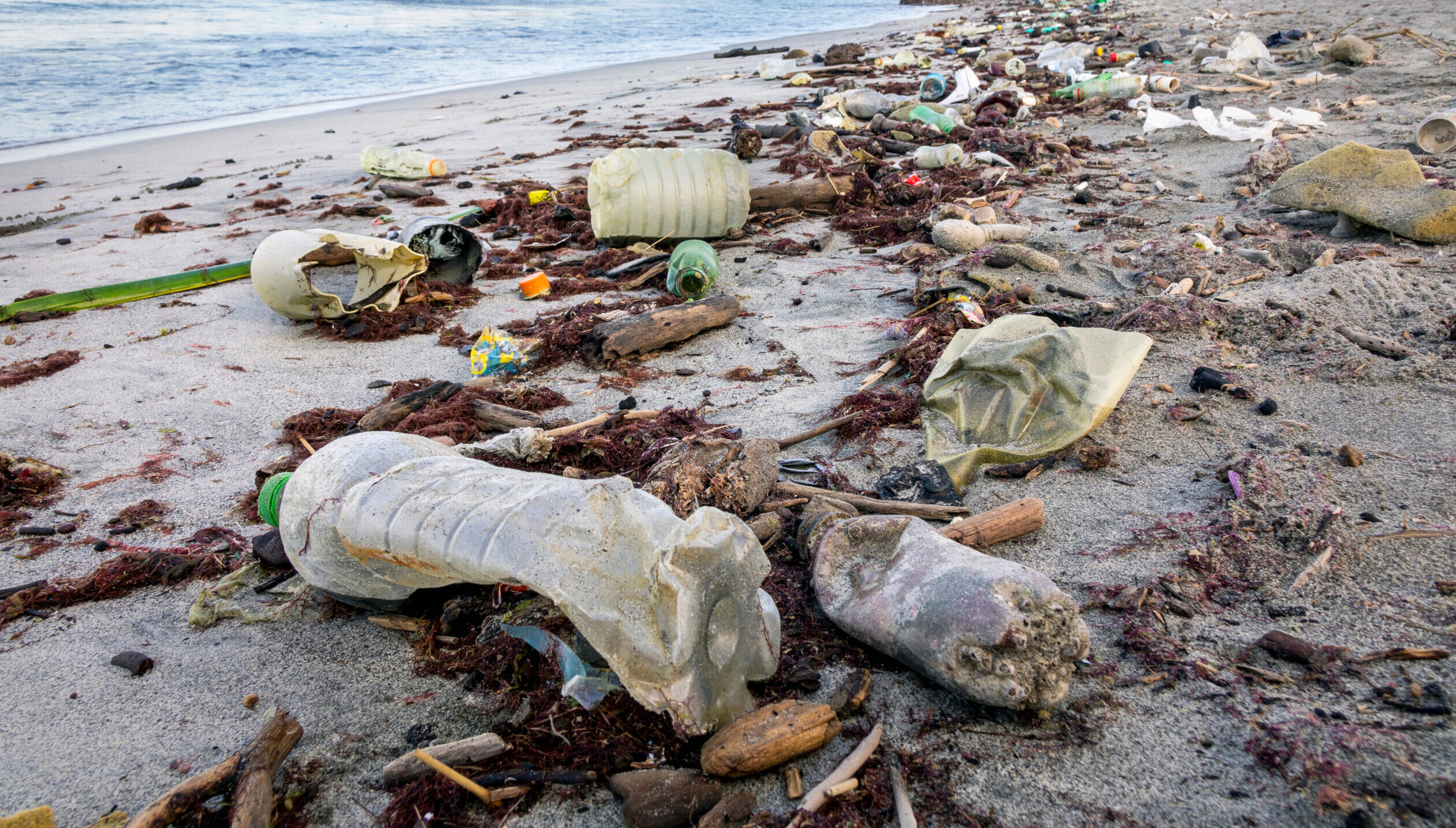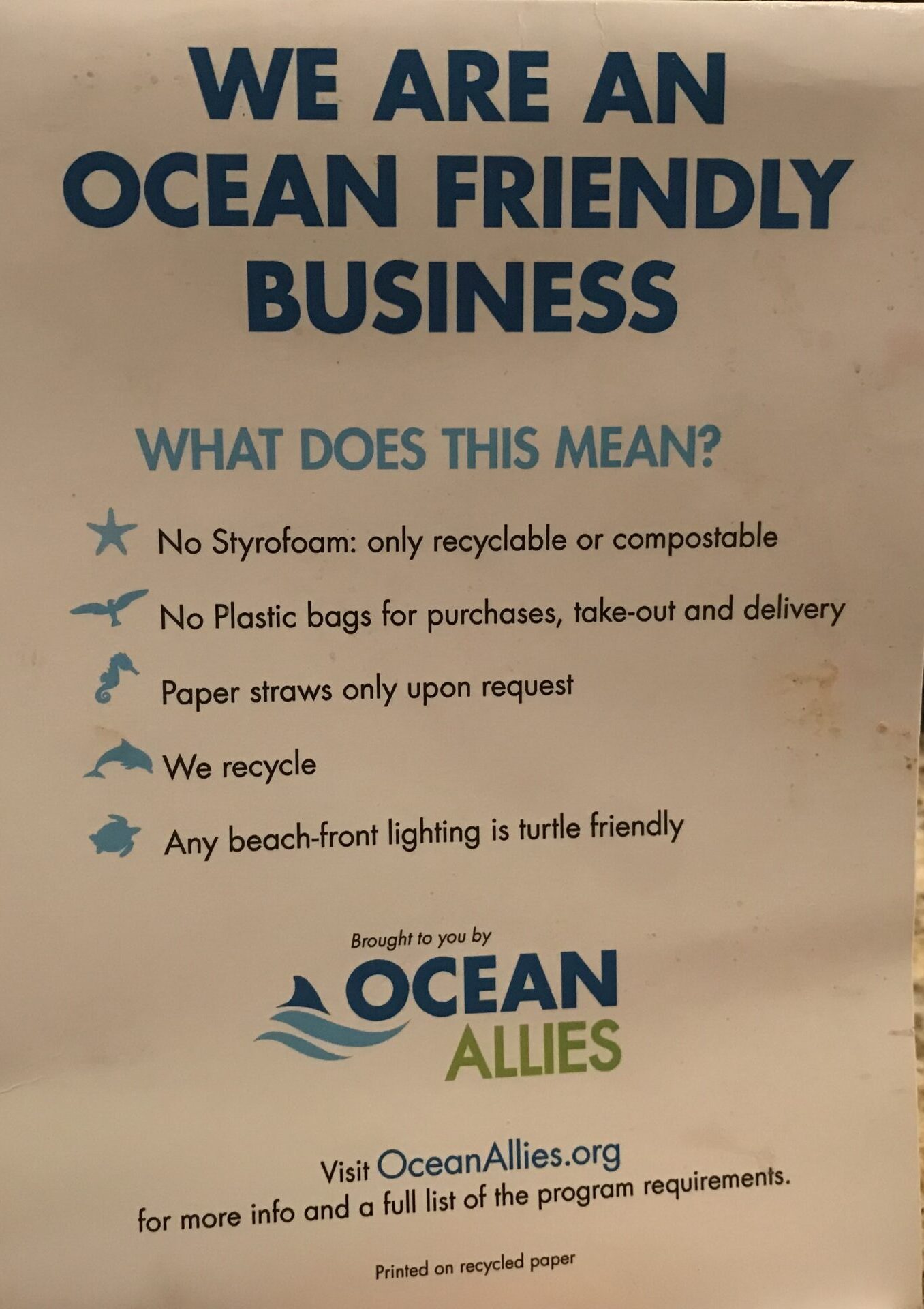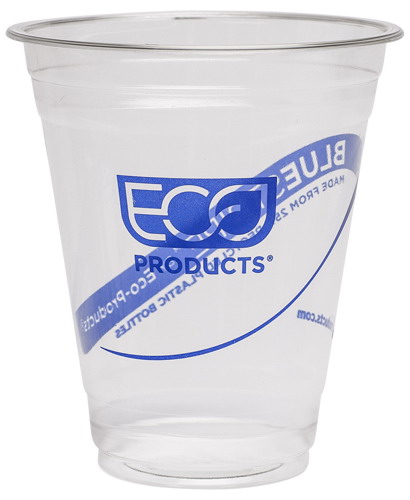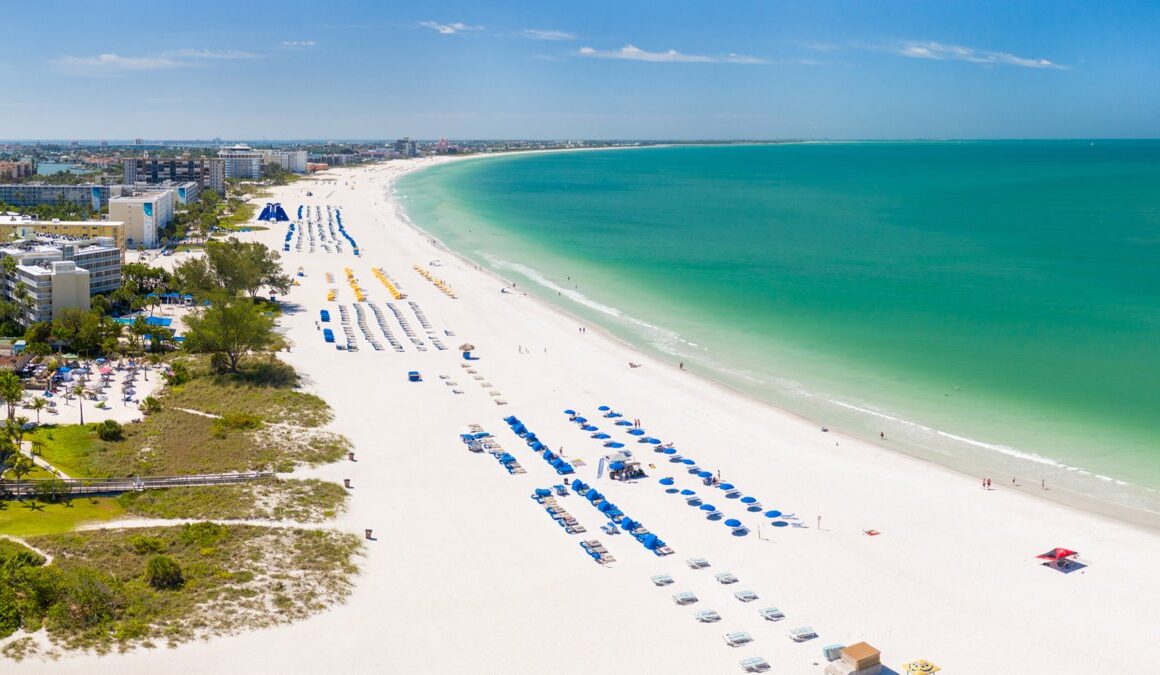
Sheri Heilman was appalled when she came back to Florida after visiting her vineyard in Oregon in 2019. “Out there, they are so much ahead of us that when I came home and there were styrofoam cups all over my kitchen, I knew we had to do better. My office manager and I threw them all away and started over.”
But the owner of Bob Heilman’s Beachcomber on Clearwater Beach took another big step forward when she got other restaurants and small businesses on board with a project that became Ocean Allies. “We had a meeting at the Beachcomber, and 60 to 70 people came out for it. One thing led to another and we ended up with a board of directors and a business plan.”
Local for now but with plans to expand nationally, Ocean Allies works with businesses of all kinds to help them take steps to become ocean-friendly. Depending upon the business, that could mean helping them find vendors for compostable cups and take-out containers, eliminating plastic straws and utensils, and identifying places where reusable equipment like refillable soap dispensers could replace less sustainable items.
The project took off and dozens of local restaurants and small businesses have joined the movement, from small cafes to large resorts and from private schools to hair and yoga salons. “We – that’s mostly me – go in and conduct an audit to see what they’re doing well, what they need to avoid and how we can help them be more ocean-friendly.”
 Using a checklist that starts with limiting single-use plastic, Heilman works with business owners to audit their products and practices ranging from water conservation and energy efficiency to avoiding serving unsustainable seafood. “This is a long process, and for some it’s longer than others depending on how far along they are when we do the first audit,” she said. “We never make a business get rid of the products they are currently using but we work to transition them to the new products that are compostable. They won’t receive certification from OA unless they meet our criteria.”
Using a checklist that starts with limiting single-use plastic, Heilman works with business owners to audit their products and practices ranging from water conservation and energy efficiency to avoiding serving unsustainable seafood. “This is a long process, and for some it’s longer than others depending on how far along they are when we do the first audit,” she said. “We never make a business get rid of the products they are currently using but we work to transition them to the new products that are compostable. They won’t receive certification from OA unless they meet our criteria.”
For restaurants, Heilman shares a profit-and-loss statement that shows how much money she saves every month. “We stopped using stir sticks, straws and the little plastic toothpicks for fruit – nobody misses any of that stuff – and we save $1000 a month on paper products.”
From a bottom-line perspective, being ocean-friendly also attracts customers who may have chosen a different restaurant and helps employee retention because the younger staff is excited about the concept.
The audit, with fees based on the size of the business, is important because “greenwashing”– making a product appear more environmentally friendly than it really is – is rampant. For example, a package of straws labeled as compostable raised some questions when Heilman realized they were just plastic straws – in compostable paper sleeves and a paper box. Trashcan liners labeled as “green” turned out to be made of green plastic — not at all what a consumer would consider to be environmentally friendly.
“There’s absolutely no regulation that would limit what a manufacturer can say on a label,” she said. “You really need to look beyond the package to make sure you’re getting what you want.”
 Auburn Supply Verifies “Green”
Auburn Supply Verifies “Green”
That can be easier said than done for most small businesses, but a Clearwater restaurant supply company is out to make it simple. Auburn Supply Company was created specifically to do the research and verify claims so customers know they’re purchasing sustainable products.
“Our bottom line is to make high-quality compostable and sustainable products as affordable as possible,” says Heidi Hoffeditz, Auburn’s vice president of customer relations. “So many businesses want to do the right thing, but there are a lot of questions about what’s out there.”
Like the typical styrofoam cups or plastic bags, products made with compostable plant materials, recycled plastic or sugarcane resin can be customized at a competitive price. And not all customers are businesses, she adds. “We can’t sell just one sleeve of cups but you can divide them up among your friends, usually at a pretty significant cost savings.”
Ocean Allies Works for All Kinds of Businesses
While restaurants were the original focus for Ocean Allies, the concept works in almost any business, including hair salons and schools. Sharmaine’s Salon on Clearwater Beach was the first salon to be certified – now there are three in Pinellas County, plus a yoga studio. In an effort led by students, St. Paul’s School also is certified as an Ocean Ally, and Amplify Clearwater hosted a completely waste-free Taste Fest last year. (The 2022 event is scheduled for Sept. 9.)
Larger organizations also recognize the value of being ocean-friendly. Restaurants at the Sandpearl Resort and Wyndham Grand are Ocean Allies. Ruth Eckerd Hall, which also will manage Imagine Clearwater, is too, so visitors to the waterfront amphitheater now under construction will be served drinks in compostable cups rather than single-use plastic or styrofoam.
“Once people understand what we’re doing then the more they do, and the more they want to do,” Heilman said. “We don’t want to be the people who are doing clean-ups – we want to be the people who prevent them from happening.”
Learn more about businesses that have received the Ocean Ally certification at https://www.oceanallies.org/partner-spotlights. Businesses interested in joining Ocean Allies can contact Sheri Heilman at 727-698-0754 or write kristina@amplifyclearwater.com
